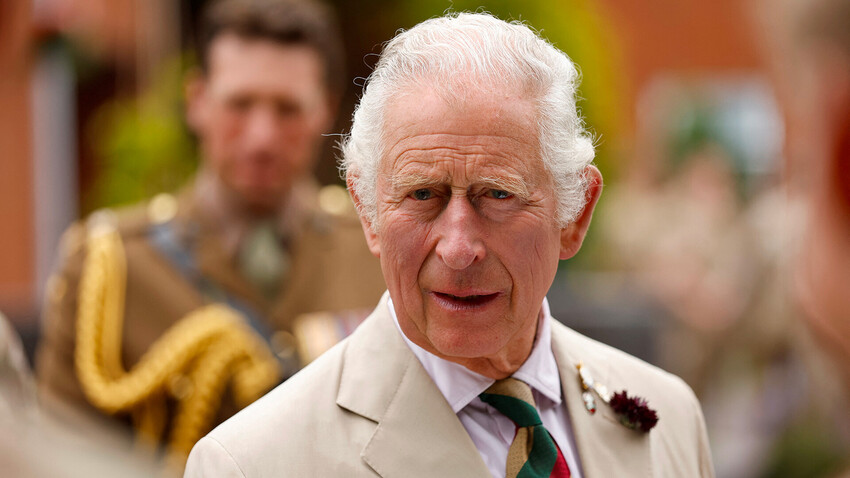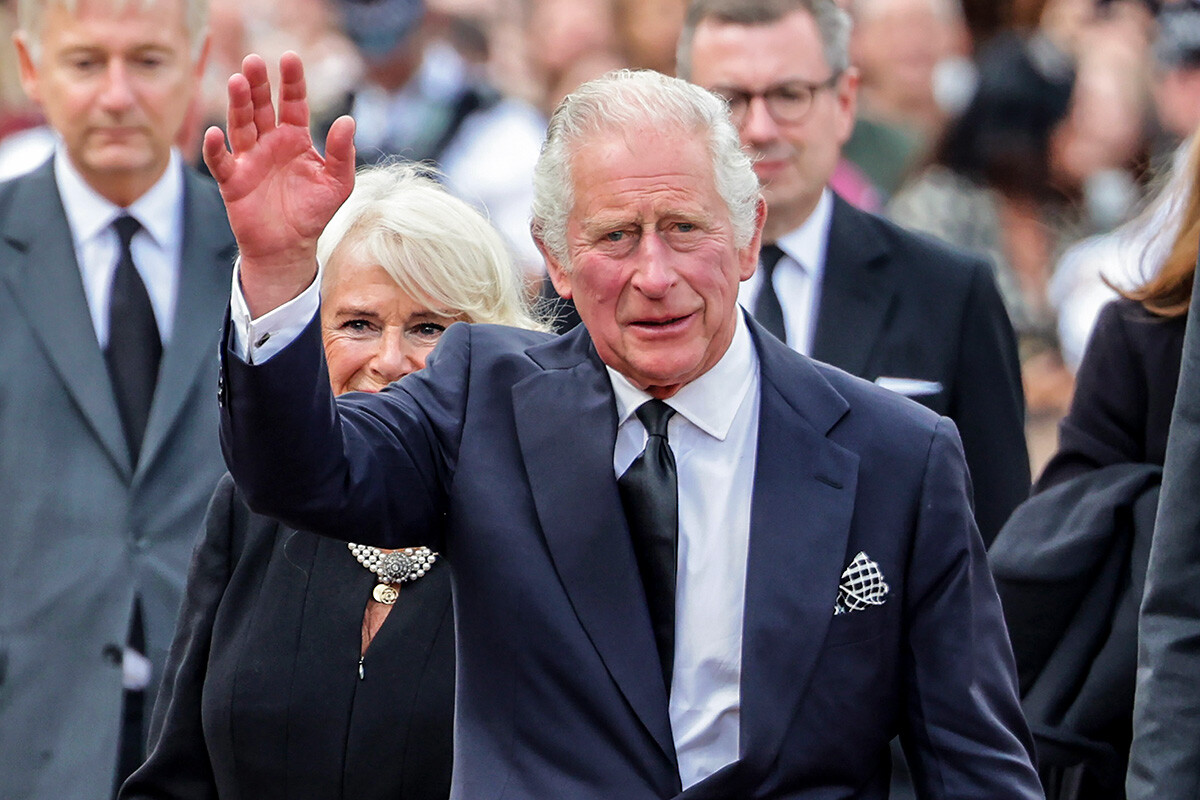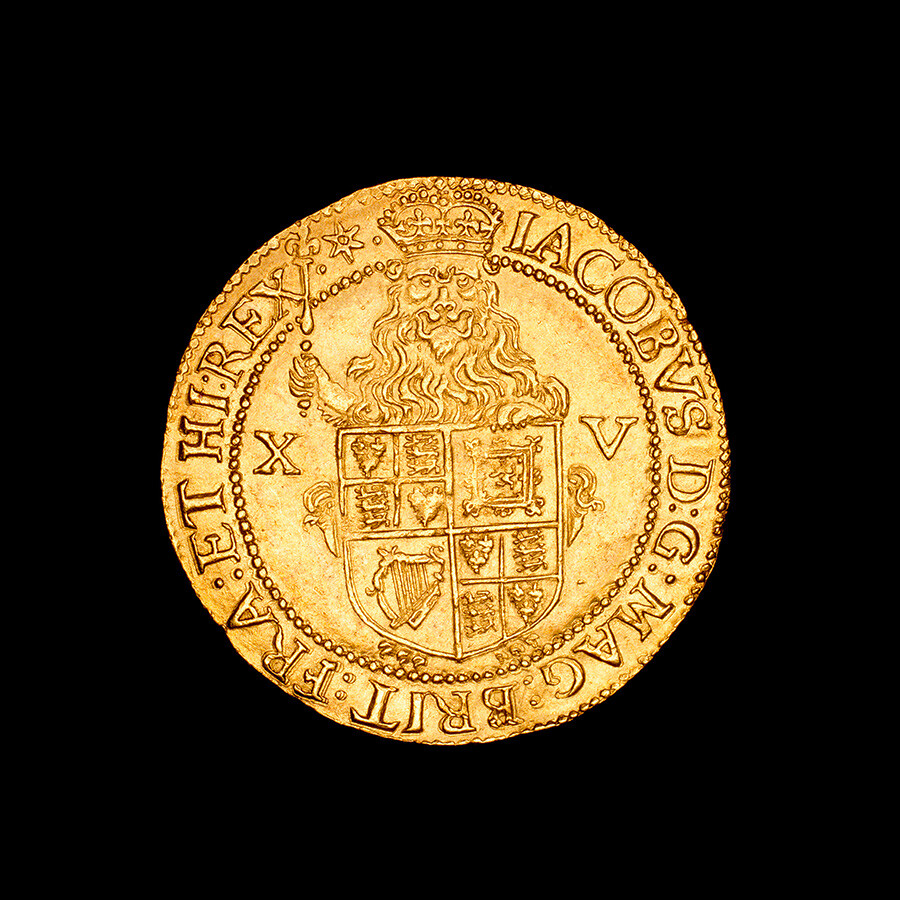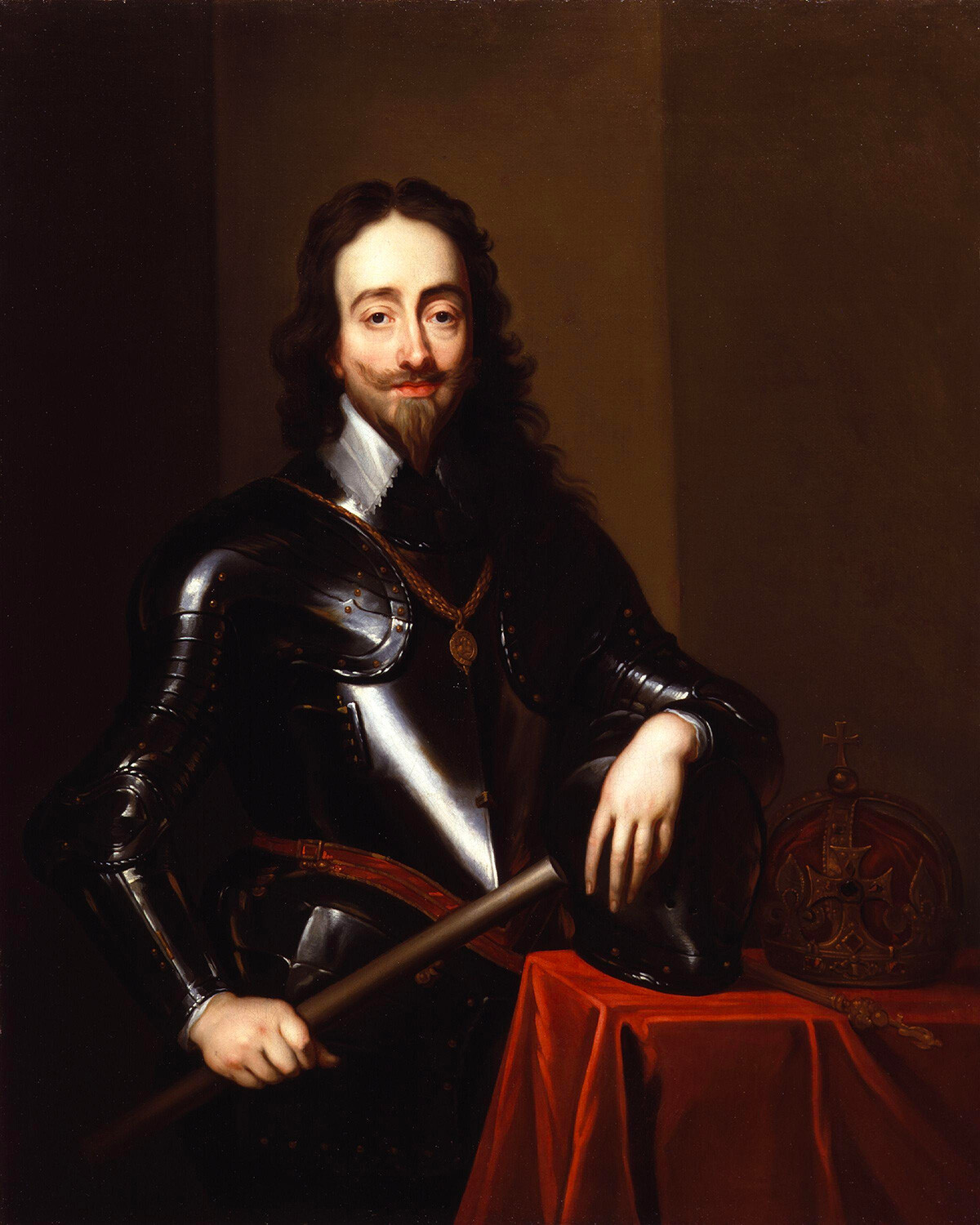
The Russian language has a peculiar way of naming English monarchs. George V in Russian is called Georg, Henry VIII is called Genrikh, while Charles III – Karl III.
This way of naming English (and other European) monarchs in Russia comes from the time when diplomatic correspondence in Europe was carried out in the Latin language – before the mid-17th century. After that, the French language slowly became the diplomatic lingua franca, but Russian diplomatic language was mostly influenced by Latin.

King Charles III waves to the public after viewing floral tributes to the late Queen Elizabeth II outside Buckingham Palace on September 09, 2022 in London, United Kingdom.
Chris Jackson/Getty Images“First names of the French, Spanish, Italian, German and English monarchs were formed on the basis of Latin language,” says linguist Dmitry Petrov. “The name Karl, which is of German origin, in Latin sounded like Carolus. In England, it was pronounced Charles, in French – Charle , in Spain – Carlos. But, on the international level, it was always Carolus, according to the rules of the Latin language. Russian historiography and diplomatic documents have preserved this way of pronunciation and writing of the Western European monarchs’ names.”

English Hammered Gold Spur Ryal Coin, 15 Shillings, James I. Note the inscription of the monarch's name in the upper left part of the coin: IACOBVS
Legion MediaThe Latin forms of the monarchs’ names were also written on English coins minted pre-18th century – for example, Georgius, Iacobus, Henricus. Meanwhile, money was an important way of learning the monarch’s name – most common Russian people in those times didn’t see diplomatic documents at all, but they could come across a coin with an English monarch’s name on it (if they were merchants, or military men).

Portrait of Charles I Stuart, King of England (1600-1649)
National Portrait GallerySo, the Charleses of England in Russia were long ago known as Carolus (pronounced Karlus in Russian). For example, when tsar Alexey Mikhailovich learned of Charles I’s execution in 1649, one of his decrees said: “The English have committed a great evil deed, their sovereign, Karlus the king, killed to death, and for this, they shall not be in Moscow tsardom.”
READ MORE: Russian roots of King Charles III
Accordingly, other European monarchs’ names are transcribed in Russian from Latin and the French Louis XIV is called Ludovik in Russian – from Ludovicus in Latin.
If using any of Russia Beyond's content, partly or in full, always provide an active hyperlink to the original material.
Subscribe
to our newsletter!
Get the week's best stories straight to your inbox